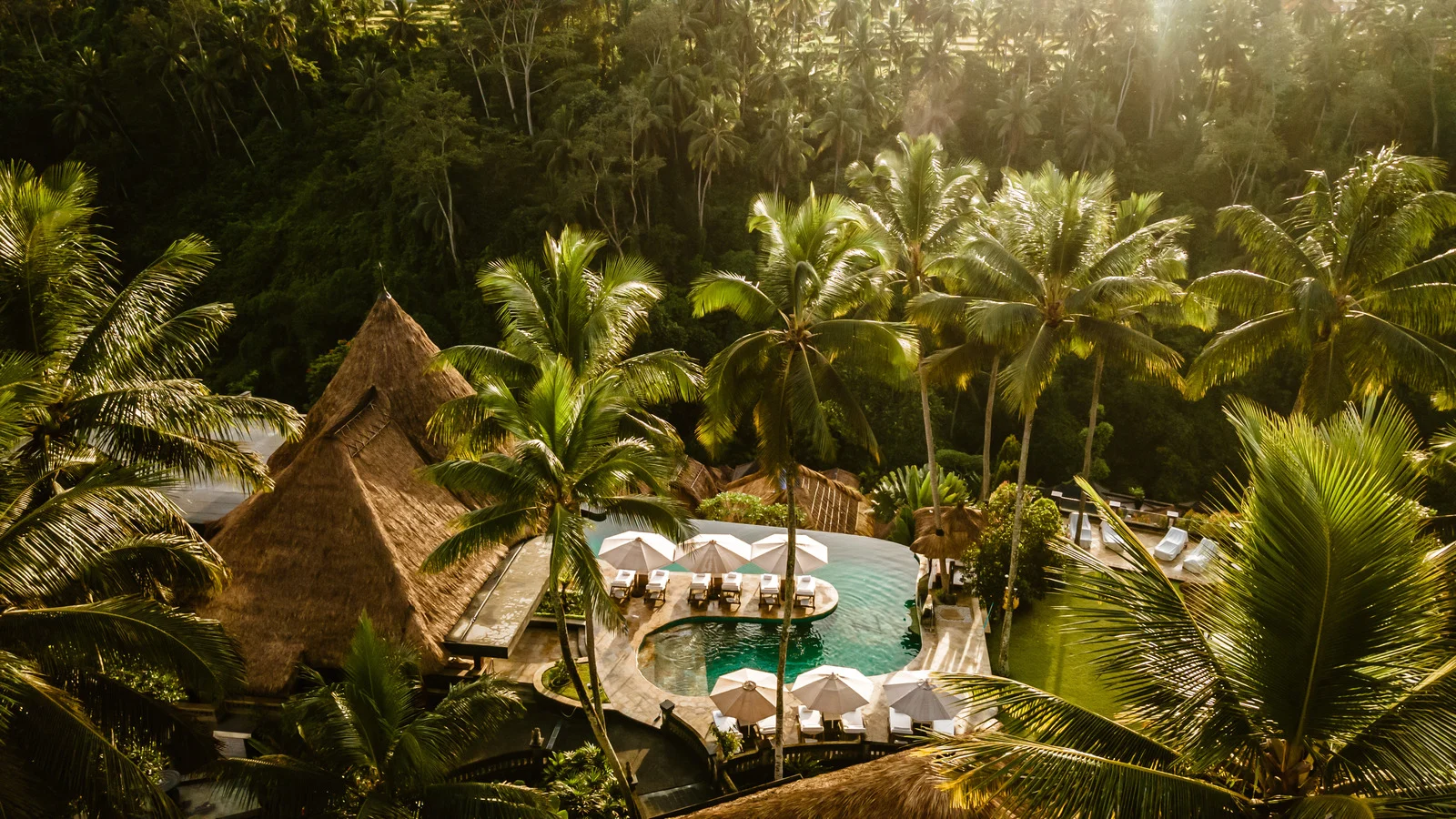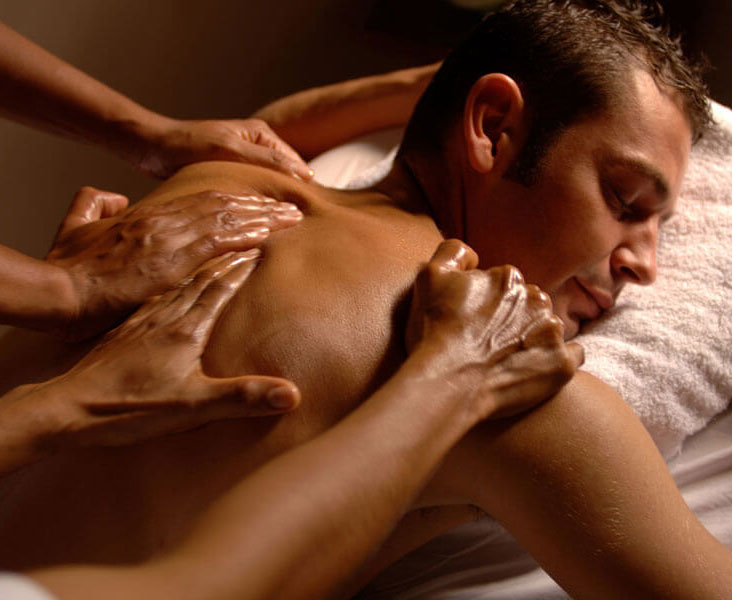Is Bali Safe?
Yes, Bali is safe for all kinds of travellers – families, couples, solo travellers, and LGBTQ+ people. Both in the daytime and at night.
It is one of the most celebrated islands in Southeast Asia. It attracts millions of travellers each year. For most, the experience is smooth and worry-free.
Indonesia has one of the lowest crime rates globally and locals are known for their friendly and welcoming demeanour.
That said, safety questions are natural. These issues are negligible. You can manage them with awareness and basic safety precautions.
This guide explains the safety concerns in Bali and the practical steps you can take to avoid them so you can enjoy your trip.
Transport Safety in Bali
Scooters are the most common way to get around Bali. But they carry a high risk of accidents, especially for tourists without experience.
Roads in Bali are usually steep, narrow, and crowded. Surfaces can be uneven or sandy. Cars, trucks, and motorbikes all compete for space. Many drivers ignore traffic rules.
Ride-hailing apps and taxis are the safest option for tourists.
How to Stay Safe:
- Do not ride a scooter unless you have experience.
- Always wear a sturdy helmet and shoes.
- Avoid driving after drinking or late at night.
- Be careful on wet or sandy roads.
- Only ride a scooter in Bali if you have a licence and you are insured.
- Use taxis or ride-hailing apps such as Grab or Go-jek.

Health Safety in Bali
Food Safety
Although the quality of Bali’s food has improved greatly in recent years, some travellers experience ‘Bali belly’. It is a stomach upset caused by bacteria or viruses in food and water. Symptoms include diarrhoea, cramps, and nausea. Most cases are mild but can spoil a trip.
How to Stay Safe:
- Eat at busy restaurants; the food turnover is high.
- Avoid undercooked meat or seafood.
- Wash or peel fruits before eating.
- Start with mild dishes if you have a sensitive stomach.
Water Safety
Tap water in Bali is not safe to drink. It can contain bacteria that cause stomach illness. Even brushing teeth with tap water may trigger problems for travellers.
How to Stay Safe:
- Drink bottled or filtered water.
- Use bottled water for brushing teeth.
- Avoid ice from street vendors. Use ice that is served in hotels or reputable restaurants.
- Carry a refillable bottle and use hotel water dispensers when available.
Mosquito-Borne Illnesses in Bali
Bali is considered a ‘low-to-no risk’ destination for malaria. But mosquito-borne diseases like dengue fever, chikungunya, and Japanese encephalitis are present. Dengue is the most common. Its cases rise in the rainy season. These illnesses are rarely fatal. But they can cause high fever, body pain, and days in the hospital.
How to Stay Safe:
- Apply insect repellent during the day and evening.
- Wear long sleeves and trousers in green or rural areas.
- Sleep in rooms with screens or air conditioning.
- Use mosquito nets in remote stays.
- Empty standing water around villas to reduce breeding sites.
Alcohol Safety
Alcohol is widely available in Bali. Local beers like Bintang are safe. There is a small risk of counterfeit or contaminated spirits, especially arak. In some cases, it has contained methanol. Methanol poisoning causes severe illness or death.
How to Stay Safe:
- Order alcohol only at reputable bars, hotels, and restaurants.
- Avoid suspiciously cheap cocktails or unlabelled spirits.
- Buy sealed bottles from supermarkets or duty-free shops if you want to drink at your villa.

Scams in Bali
Money, ATMs and Currency Exchange Safety
Petty money risks in Bali usually come from ATMs and currency exchange.
Some standalone ATMs on the street can be unsafe. Criminals can fix fake parts or small cameras to steal details of your card.
Small streetside kiosks that advertise attractive exchange rates may cheat you. They may offer higher rates, but then give less cash by using quick tricks with the notes.
How to Stay Safe:
- Use ATMs in banks, malls, or trustworthy spaces.
- Check the card slot and keypad before use.
- Cover your PIN when entering it.
- Exchange money only at authorised counters in the office.
- Count your cash before leaving.
- Carry only the cash you need for the day.
Transport Scam
In some cases, visitors who hire taxis, scooters, or private drivers are the targets of transport scams.
Drivers sometimes charge more than they should, ask for payment up front, and take shoppers’ stops where they can earn commissions. Some drivers also lie about their meter being broken or overcharge non-riders.
How to Stay Safe:
- Use Grab or Gojek for short rides if you can.
- Agree on the fare before you get in a private taxi.
- Pay when the ride is over.
- If using a meter taxi, check that the meter runs from zero.
- Book drivers through your hotel or a trusted operator.
Timeshare Scam
People in tourist areas like Kuta, Legian, and Nusa Dua may come up to you and offer you free vacations, scratch cards, or chances to win prizes. These are lures. They lead to timeshare sales events where employees pressure you to sign expensive contracts that often have hidden fees and long-term commitments.
How to Stay Safe:
- Decline people who offer free prize or scratch cards.
- Do not share personal or payment details.
- Book holidays only through trusted hotels or travel companies.
Rental Scam
Some fake villa listings in Bali trick tourists. Scammers take deposits, copy pictures of real homes, and then leave.
How to Stay Safe:
- Use known agencies or trusted platforms to book properties.
- Look at the most recent reviews.
- Stay away from listings that look cheaper than similar options.
Visa Scam
The main risk is dealing with fake or unlicensed agents. Some take money and disappear or charge hidden fees.
How to Stay Safe:
- Use only well-known visa agencies with favourable reviews.
- Check fees across agencies. Avoid offers that are far cheaper than others.
Petrol Scam
Some tourists on scooters report fuel scams in Bali. At some stations, attendants may give less petrol than paid for or fail to reset the pump meter. Roadside vendors often sell petrol in bottles, which can be diluted and sold at inflated prices.
How to Stay Safe:
- Purchase fuel at official Pertamina stations. They are Indonesia’s state-owned fuel provider.
- Ensure the pump meter is reset to zero.
- Pay with small notes to avoid confusion.
- Do not buy petrol in bottles from roadside shops.
Hiking Scam
On some popular trails, like Mount Batur and Sekumpul Waterfall, some local guides pressure travellers to hire them.
These groups often claim the route is unsafe or confusing without their help. In some cases, they can be pushy or intimidating.
How to Stay Safe:
- Research your hike in advance. Many routes are straightforward. They do not require a guide.
- If you want a guide, book through your hotel or a trusted operator.
- If approached at the site, stay calm and decline politely.
- Go early in the day, when fewer touts are present.
Tour and Guide Scam
Unofficial guides and operators in some tourist areas charge hidden or inflated fees. The other common issues are guides who first say their service is free but later ask for money, people pretending to charge entry fees, and pressure to give donations at temples.
How to Stay Safe:
- Book tours with reputable companies or directly through your hotel of stay.
- Pay for admission at the official ticket booth. Do not give money to anyone who asks for it outside the entrance.
- Set guide fees ahead of time.
- Remember that donations at temples are not mandatory.
Read reviews before booking tours online.
Safety From Natural Disasters in Bali
Bali sits on the Pacific Ring of Fire, which is a tectonic belt of volcanoes and earthquakes.
Bali has two active volcanoes, Mount Agung and Mount Batur. Eruptions are rare. These volcanoes are located far from the main tourist areas in Bali. Authorities monitor them for seismic activity, and some people even trek to them.
Bali often has tremors that range from small shakes to occasional stronger quakes.
How to Stay Safe:
- Check official alerts before hiking volcanoes.
- Follow local instructions during any eruption or quake.

Safety From Animals in Bali
Monkeys at temples and forests often snatch food or belongings. They can scratch or bite if they feel intimidated or provoked, which risks infection.
Stray dogs in Bali are common; some of them carry rabies. A single untreated bite can be fatal.
Bali has around 50 species of land snakes. Only a handful of them are dangerous to humans. They can be active both day and night. As natural habitats shrink, snakes sometimes enter gardens or houses in rural areas. They will bite if scared or hurt.
How to Stay Safe:
- Refrain from feeding or teasing animals.
- Hold on to your belongings when around monkeys.
- Wear shoes when you walk in rural areas.
- Use a flashlight at night.
Crime in Bali
Shootings and Murders
Guns are controlled in Indonesia. Shootings are uncommon. Indonesia’s Central Statistics Agency data shows very few firearm-related crimes in Bali in recent years. Indonesia’s homicide rate was 0.4 per 100,000 people as of 2017, which is well below the global average.
Most visitors find the island calm. Locals are known for their friendliness.
Petty Theft
Petty theft is the most common crime in Bali. Incidents often involve motorbike snatchers targeting phones or handbags. Pickpocketing can also happen in crowded bars or restaurants.
How to Stay Safe:
- Let your phones and bags be on the inner side of the road.
- Do not leave valuables unattended.
- Carry only a small amount of cash.
- Avoid wearing expensive jewellery.
Sexual Assault and Harassment
Travel advisories report cases of sexual assault and harassment in Bali and nearby islands. Most incidents occur in dark places or after drinks are spiked at bars.
Indonesia also reports cases of child abuse. Authorities and NGOs are working to reduce this concern.
How to Stay Safe:
- Only get in a taxi that is licensed, like Bluebird, or book one through the Grab or Gojek apps.
- Make sure that the driver matches the information in the app.
- Share your ride details with a friend when possible.
- Avoid walking alone in the dark.
Drink Spiking
Authorities report cases of drink spiking in Bali, Lombok, and the Gili Islands. Victims have woken up robbed or assaulted after a night out. Most cases happen in crowded bars or party areas.
How to Stay Safe:
- Watch your drinks being prepared; do not leave them unattended.
- Do not accept drinks from strangers.
- Stick to well-known bars and clubs.
- Be cautious with cheap alcohol deals.
Terrorism in Bali
There have been no incidents of Terrorism in Bali in recent years. Bali experienced terrorist bombings in Kuta in 2002 and 2005. Since then, internal security has improved greatly. The Indonesian government monitors threats closely. The overall risk for visitors is extremely low.




















